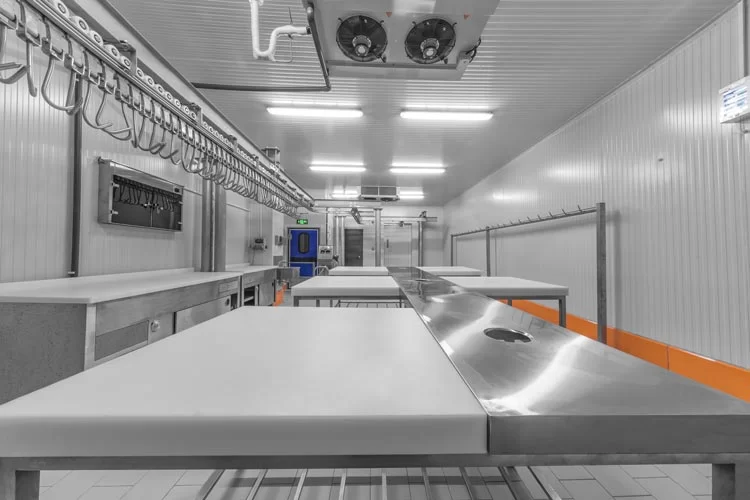Your HVAC system is the heart of your home’s comfort, regulating temperature and air quality year-round. But like any mechanical system, it can break down — often at the worst possible time. Ignoring the early signs you need HVAC repair can turn minor issues into costly emergencies, sometimes requiring 24/7 HVAC repair services.
In this complete guide, we’ll cover the most common HVAC breakdown symptoms, explain when to call for emergency HVAC repair, and share tips for preventing future problems.
1. Strange Noises from HVAC System
Your HVAC system should run with a low, consistent hum. If you hear banging, screeching, grinding, or rattling, these are strong warning signs of HVAC system failure.
-
Banging or clanking could mean loose internal parts.
-
Screeching often points to a failing blower motor or fan belt.
-
Grinding may signal worn bearings.
Strange noises rarely fix themselves. In fact, ignoring them can cause more damage, leading to immediate HVAC system repair needs.
2. Weak Airflow from Vents
If you notice weak airflow from vents, your system may be struggling to circulate air. Common causes include:
-
Dirty or clogged air filters
-
Damaged ductwork
-
Failing blower motor
Poor airflow forces your system to overwork, increasing energy costs and reducing its lifespan. Calling a technician for urgent heating and cooling repair ensures the problem is diagnosed and fixed before it leads to a full breakdown.
3. Inconsistent Indoor Temperatures
Uneven heating or cooling is one of the most noticeable common HVAC repair issues. Some rooms may feel too hot while others are too cold. Possible causes include:
-
Leaky ducts
-
Faulty thermostats
-
Compressor problems
If your system can’t maintain consistent temperatures, you should arrange for professional HVAC troubleshooting. Left unchecked, these problems can shorten the life of your system and waste energy.
4. Unusual HVAC Smells
Odors coming from your vents are never a good sign.
-
Musty smells can indicate mold growth in ductwork.
-
Burning smells could signal overheating components or electrical problems.
-
Chemical odors might point to refrigerant leaks.
Any of these should prompt a call to 24/7 HVAC repair services, especially burning or chemical smells, which can pose safety hazards.
While no system lasts forever, you can reduce the need for emergency HVAC repair by:
-
Changing air filters every 1–3 months
-
Scheduling seasonal tune-ups with a licensed technician
-
Cleaning around outdoor units to ensure airflow
-
Installing a smart thermostat for better control
These steps not only prevent sudden breakdowns but also extend your system’s life and improve efficiency.
5. High Energy Bills Due to HVAC Issues
If your energy bills spike without changes in usage, your system could be running inefficiently. Common causes include:
-
Refrigerant leaks
-
Dirty condenser or evaporator coils
-
Worn-out mechanical components
These early signs your HVAC needs service can quietly drain your wallet. Scheduling an inspection for immediate HVAC system repair can restore efficiency and lower costs.
6. HVAC Not Heating or Cooling Properly
If your furnace blows cold air in winter or your AC fails to cool in summer, your system may have:
-
Low refrigerant levels
-
Compressor failure
-
Faulty thermostat
These are serious HVAC breakdown symptoms and often require emergency HVAC repair to restore comfort during extreme weather conditions.
7. When to Schedule Emergency HVAC Repair
You don’t always need immediate service, but certain situations demand it:
-
Complete system shutdown during heatwaves or freezing temperatures
-
Persistent burning smells or smoke from vents
-
Loud mechanical noises that worsen quickly
-
Rapid temperature swings or total airflow loss
These are common causes of sudden HVAC breakdowns and can worsen if you delay repairs.
8. How to Know If Your HVAC System Needs Repair
Recognizing problems early can save you money and stress. Key symptoms of a failing furnace or AC include:
-
Frequent cycling on and off
-
Excessive humidity indoors
-
Vents blowing warm air when cooling is set (or vice versa)
-
System tripping circuit breakers
If you notice one or more of these, it’s time to call for HVAC repair services.
While no system lasts forever, you can reduce the need for emergency HVAC repair by:
-
Changing air filters every 1–3 months
-
Scheduling seasonal tune-ups with a licensed technician
-
Cleaning around outdoor units to ensure airflow
-
Installing a smart thermostat for better control
These steps not only prevent sudden breakdowns but also extend your system’s life and improve efficiency.
9. Preventing Future HVAC Emergencies
While no system lasts forever, you can reduce the need for emergency HVAC repair by:
-
Changing air filters every 1–3 months
-
Scheduling seasonal tune-ups with a licensed technician
-
Cleaning around outdoor units to ensure airflow
-
Installing a smart thermostat for better control
These steps not only prevent sudden breakdowns but also extend your system’s life and improve efficiency.
Final Thoughts
Your HVAC system is essential to your home’s comfort and safety. Understanding the signs you need HVAC repair—from weak airflow and strange noises to high energy bills and unusual smells—can help you act before small issues turn into expensive emergencies.
Whether you require urgent heating and cooling repair or routine maintenance, working with a reputable company that offers 24/7 HVAC repair services ensures you’ll stay comfortable no matter the season.

